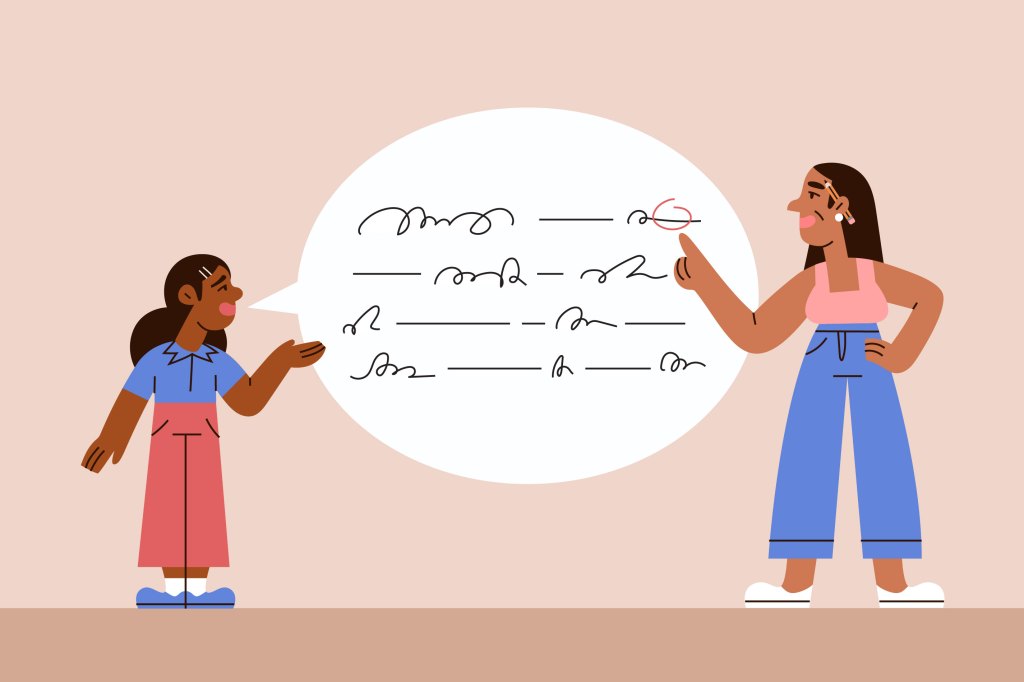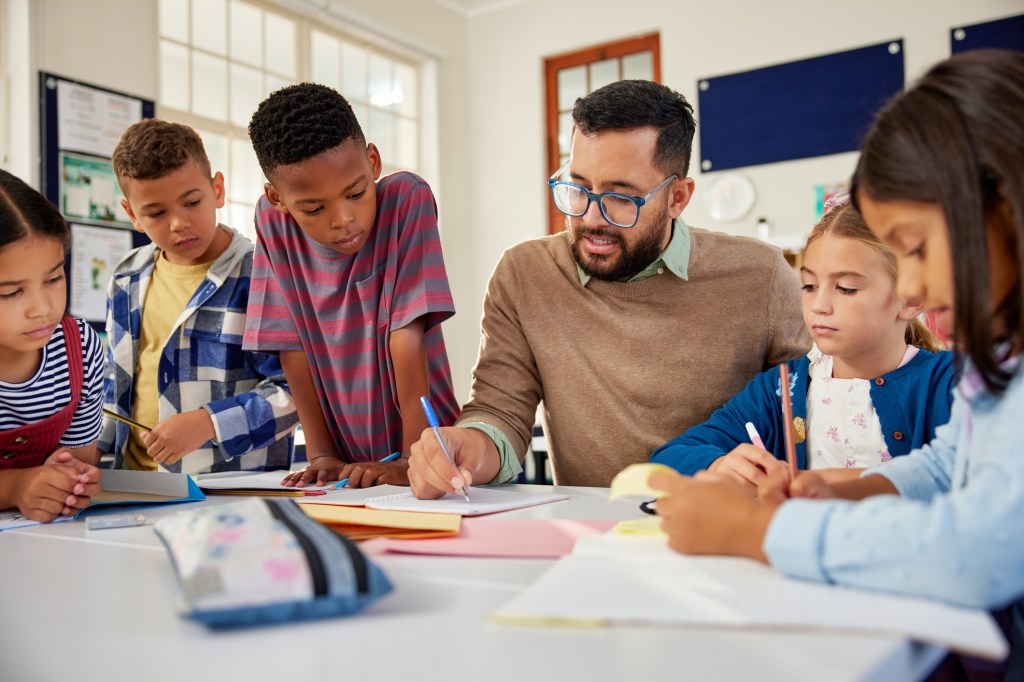Dig deep into your school days, and we’d bet there’s a moment there that significantly helped shape who you are today — and a teacher attached to it. Maybe it was your fourth grade teacher who spun such an entertaining story about a historical event that your passion for the subject was ignited. Or perhaps it was your high school algebra teacher who pointed out your natural ability to solve linear equations for the first time, boosting your confidence and inspiring you to pursue a career in STEM. Whatever the case, there’s a solid chance you had an educator who saw your spark before you did.
“Every child deserves a champion — an adult who will never give up on them, who understands the power of connection, and insists that they become the best that they can possibly be,” the late educator Rita F. Pierson said in a 2013 TED Talk, adding, “[Educators] are born to make a difference.”
These important moments don’t just happen by accident. Good teachers are gifted at making valuable, lasting impacts on their students’ lives, and there are quite a few traits that research suggests many of our favorites share. In honor of World Teachers’ Day today, we’d like to recognize what it takes to be an outstanding educator — and maybe even encourage you to give the profession a try yourself.
Great Teachers Are Skilled Communicators
Sure, teachers need to know what they’re talking about when it comes to handing down lessons, but they must also relay that information in ways their students can understand. Additionally, strong educators deliver clear feedback, motivate their students, and listen to their questions and concerns (after all, listening is half of effective communication).
“Teachers that are skilled in listening and observing often pick up on what isn’t being said, such as any anxieties a student may have,” Southern New Hampshire University peer mentor Kristine Ducote explained in a blog post. “[They] can then help the student build their skills and confidence levels.”

One study from the U.S. Department of Education that surveyed undergraduate and graduate students at a Midwestern university business school found that following subject matter expertise, communication contributed to good teaching more than any other trait. “Content is certainly important to effective teaching, but unless the delivery of the content is effective, the content cannot be ‘absorbed’ by the students,” the authors wrote. “Therefore, communication is really at the center of a quality classroom.”
They Have Piles of Patience
Kindergarteners may need help staying quiet during class, high school students may need that tenth daily reminder to get off their phone … the list of reasons teachers need patience (in droves) goes on. And according to teacher and author Richard James Rogers, skilled educators recognize that it may take some students longer than others to achieve their academic goals.
“Sometimes our students just seem to ‘grow’ into achievement. Some grow slowly and steadily like a plant that is regularly fed and watered,” he wrote on his website. “Some shoot up in a surprising spurt: defying everyone’s initial predictions. I believe strongly in the power of patience when working with students. This takes emotional control on the part of the teacher, but the reward is well-worth the wait.”
Research backs this up, too: In a study out of Australia from earlier this year, patience was listed as one of the top 10 traits that “define great educators beyond academic results or formal qualifications.”

Good Educators Treat Others With Respect …
Great teachers understand the value of respect to cultivate an environment in which students feel safe to ask questions, challenge assumptions, and be themselves. “Respect is a very important foundational factor in the development and maintenance of a healthy learning environment. It is respect that opens space for the development of trust and learning,” educational leaders Jill Berkowicz and Ann Myers wrote for Education Week, noting, “Dignity is a human right, essential for all in schools.”
Those being taught also feel this way — in a 2022 paper, higher education students ranked respect as the second-most important quality in the personality category for an effective teacher. Defined as “considerate of their educational community,” the trait also made an appearance on the previously mentioned Australian study’s top 10 list, and claimed sixth place in the ED’s ranking of qualities that contribute to good teaching.
… And Pivot When Needed
It’s important, of course, for great teachers to thoroughly understand their subject matter — but it’s also essential that they’re able to think on their feet. Educators may need to pivot their lessons depending on their students’ learning styles and situations that arise in their classrooms. And to do so, they need to be adaptable.
“Perhaps one of the most important, but hardest to define, skills is teachers’ decision-making capability. Knowing what to do or say next during the flow of instruction is never easy, partly because there’s no ‘one best way’ to engage students, present content, or address a student mistake,” Harvard teacher learning and practice professor Heather Hill wrote for The Harvard Gazette, adding that the best teachers “can respond smoothly in the moment when students don’t understand material or get distracted.”

And the students aren’t the only reason teachers may need to shift gears — the curricula may demand it too. A 2021 analysis identified adaptability as one of the hallmarks of good teaching, noting that “teachers need to be aware that knowledge is not static; rather, it is constantly recycled and re-created.”
Consider Becoming a Sub
If you’ve been reading through these traits and thinking that some (or all) hit home, you may want to consider becoming a substitute teacher. Subs meet a crucial need for schools, and offer a great way to build relationships with other educators. These positions often have flexible schedules, empowering you to choose when and where you work, and they offer a way to earn income while maintaining a solid work-life balance.
Subbing is also a fulfilling way to contribute to your community and make a difference in the next generation. “If there’s one certainty we can stand on as educators, it’s this: Our work matters,” special education teacher Rachel Jorgensen wrote for Edutopia, adding, “No matter how difficult this work may seem, there’s a high likelihood that we are transforming lives for the better, often without even realizing it. This philosophy has resulted in countless positive transformations in my students, and I can think of nothing more rewarding.”
To learn more about becoming a sub, check out this guide.
RELATED: How to Best Support Teachers During Back-to-School Season, According to a Former Teacher












